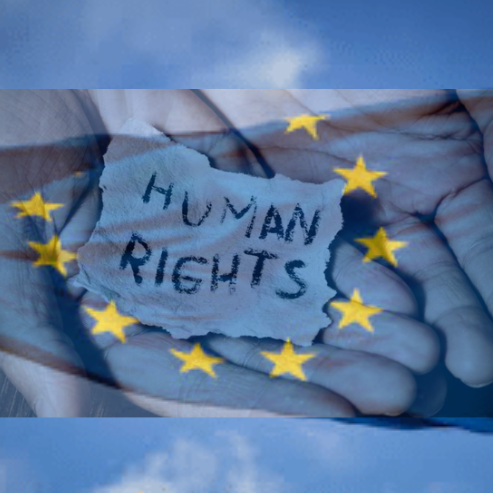By ECDHR Staff, 13 May 2022
Introduction
Over the past decade, the European Union naively put at stake its core democratic values by rendering itself dependent on autocratic players, such as Russia and the GCC countries, the positions and declarations of which now risk undermining European objectives and stability. Indeed, the unprovoked Russian aggression against Ukraine has doubtlessly shaken up the international order, particularly affecting the EU’s political and economic interests. This scenario has caused the EU to further strengthen its partnership with the GCC countries in order to fill the void of a potential Russian fossil fuel boycott. Indeed, Saudi Arabia and the UAE fuel spare capacity is the path that the EU is pursuing to increase output and avoid supply losses. However, the implications of such close ties with Gulf countries appear to be rather problematic in light of two crucial matters: the protection of human rights and the Russia-Gulf relationship.
Soft Power undermines Human Rights
On May 10, 2022, the European Parliament Subcommittee on Human Rights (DROI) held an exchange of views on the Human Rights impact of Foreign interference by Gulf countries. During the session, Mr. Nicola Giovannini, Executive Director of Droit au Droit (DAD) International, presented the “Undue Influence”, an Investigative Report on Foreign Interference by the UAE in the Democratic Processes of the EU. The main topics the report focuses on are lobbying strategies or soft power means of persuasion: the analysis highlights how, in addition to traditional diplomacy means, “the UAE relies on soft power to the creation of circles of persuasive pressure and echo chamber to persuade EU policymaker in the EU institution, including the EP”, as to push towards the adoption of a foreign policy agenda running contrary to “EU human rights principles, foreign policy, and security interests”.
The main objective is to internationally spread the narrative of the UAE being a tolerant country: through targeted (media) campaigns and a wide network of Brussels-based think tanks and discussion platforms, the UAE whitewashes its dark side. The country presents itself as a moderate and friendly ally for the EU in the Middle East, willing to engage in humanitarian aid, fight terrorism and climate change while pushing for secular modernization. However, such depiction is at odds with the repressive reality faced by journalists, political prisoners, and human rights defenders in the country. What is more concerning is that such lobbying strategies curb any space for debate or criticism, making the EU’s fundamental values even more vulnerable to such a narrative. The general carelessness of the EU institutions towards human rights violations committed by the UAE, and more generally by the GCC, clearly shows how these intense lobbying strategies are impacting the EU. The sporadic adoption of urgency resolutions by the EP cannot be considered an effective way to uphold and promote human rights in the Gulf. Particularly worrying could also be the reliance only on silent channels of communication. According to some experts, the EU should accept that “face-saving” is an important part of the political sphere of the Gulf and thus human rights problems should be dealt with through private channels that avoid public shaming. However, such a strategy risks subtracting human rights matters from public scrutiny, giving the GCC further leverage on the EU to threaten human rights and democratic principles.
As stated by Rula Jebreal, award-winning journalist, author, academic and filmmaker, “it’s the lies that keep dictatorship alive”. As long as the EU refuses to accept that the UAE and Saudi Arabia are totalitarian and high-tech surveillance states where dissident voices and human rights are violently silenced, it will fail on its own values and principles. As stated by Mr. Tabatabai in a previous public hearing at the EP, EU concerns about human rights are often not credible because of how they are voiced. The double standard appears to be a failing strategy: while condemning Russia for violating Ukraine’s sovereignty and independence, the members of the EP are avoiding admitting that such criminal acts are also enabled by the Gulf dictators, thus undermining Brussels’ efforts. Indeed, Russian oligarchs find a safe haven in the GCC while the EU imposes sanctions on them and calls for international actions to hold perpetrators of war crimes accountable. On the occasion of Russia’s Victory Day, Saudi Arabia and Bahrain congratulated President Putin wishing “further progress and prosperity” to the country and its people. More than 70 years after the end of Nazi atrocities, Russia is breaching core international principles that came into existence to avoid our society to experience the brutality of WWII ever again. Yet, such crimes are taking place with the blessing of the GCC countries which wish to advance their relationship with Moscow. Despite having voted in favour of the UN General Assembly resolution demanding Russia to immediately withdraw its forces from Ukraine, Saudi Arabia, Bahrain and the UAE seek Russia as a close partner against the efforts of those member states willing to put aside their national interests to protect human rights.
Conclusion
It is time for the EU to set human rights as a priority in its foreign affairs strategy and emerge as a global player with a key role in the Gulf region. Living in a globalised world the EU reasonably seeks a strategic partnership with the Gulf, especially taking into account the numerous benefits that such close ties could bring to member states in overcoming future challenges. However, if the EU fails to take a clear stand in promoting its fundamental values while advancing economic, political and security interests, the EU-Gulf relationship could produce detrimental implications rather than advantages. Despite different perspectives on human rights creating some obstacles so far, the EU has managed to keep the dialogue open. The current geopolitical scenario represents a great chance to use this dialogue as a starting point for the EU to gain an influential place in the Gulf. If it fails to do so, the EU will be set aside along with its human rights and democratic principles.

